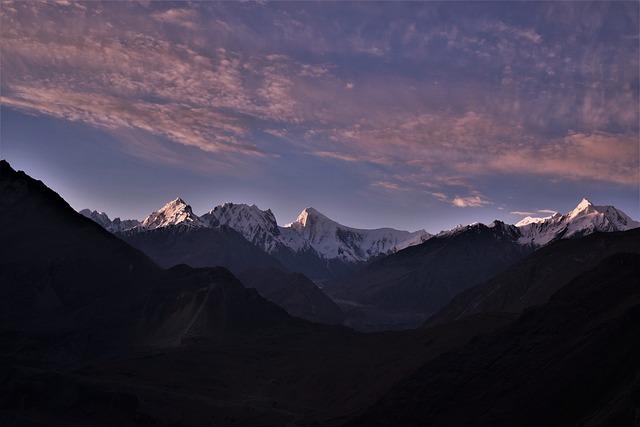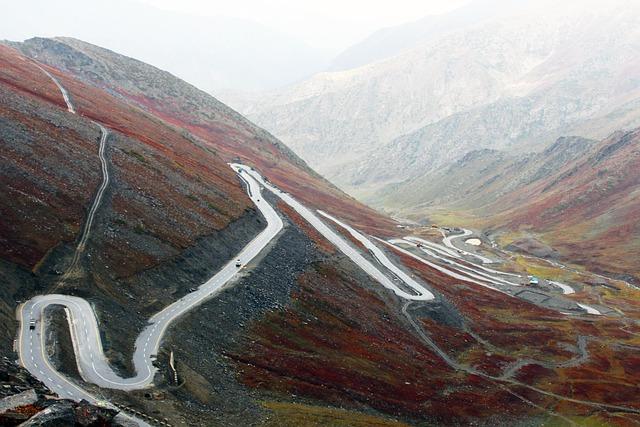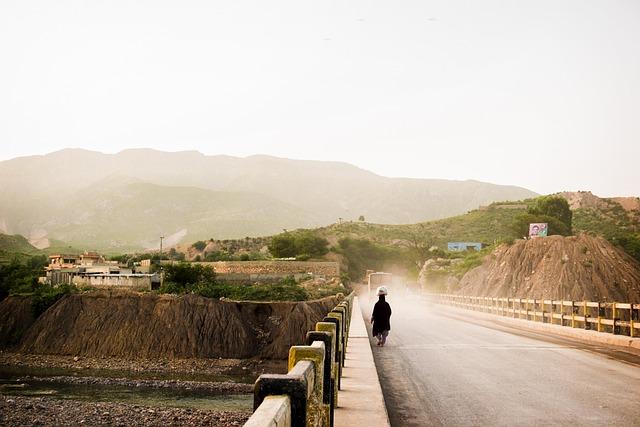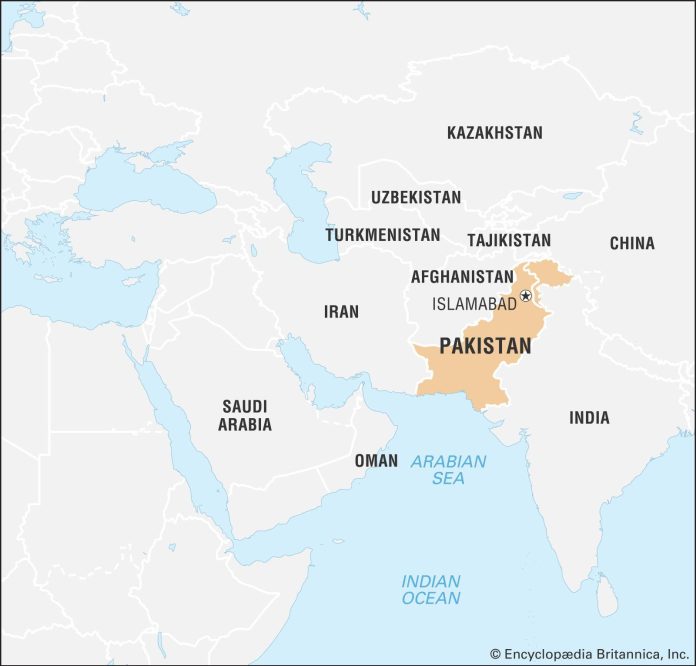Nestled at the crossroads of South Asia, Central Asia, and the Middle East, Pakistan stands as a pivotal player in the intricate tapestry of international relations. Its strategic location, flanked by crucial economic corridors and a diverse array of neighboring nations, places it at the heart of regional dynamics that extend far beyond its borders. As global powers recalibrate their interests and alignments, Pakistan’s multifaceted role evolves, influenced by its historical context, economic aspirations, and security imperatives. This article delves into the complex interplay of factors that define Pakistan’s influence in shaping regional relationships, assessing its contributions, challenges, and the potential pathways that lie ahead. Through an exploration of diplomatic engagements, economic collaborations, and security concerns, we aim to unravel the nuances of Pakistan’s position on the international stage, illuminating the vital role it plays in the broader context of regional stability and cooperation.
Pakistans Strategic Geopolitical Position and Its Implications for Regional Stability
Pakistan occupies a critical juncture in South Asia, acting as a bridge between the Indian subcontinent, Central Asia, and the Middle East. This geopolitical positioning endows the country with both opportunities and challenges that significantly influence regional stability. The strategic corridor facilitated by the China-Pakistan Economic Corridor (CPEC) exemplifies Islamabad’s role in enhancing its economic engagements while simultaneously increasing its geopolitical leverage. As a key player in the Afghan peace process, Pakistan’s actions in this regard have far-reaching consequences for regional security, impacting not only its neighbors but also major powers like the United States and China.
Furthermore, Pakistan’s relationships with neighboring countries bring both cooperation and contention to the fore. The dynamics with India remain particularly tense, primarily due to unresolved territorial disputes and divergent security policies. Enhancing partnerships with countries such as Iran and fostering trade ties with Central Asian states can pave the way for a more stable regional environment. To illustrate these relationships and their implications, consider the following table highlighting key factors:
| Country | Nature of Relation | Implication for Stability |
|---|---|---|
| India | Tense | Persistent conflict, increased militarization |
| China | Strategic partnership | Economic growth, military collaboration |
| Afghanistan | Complex | Influence on peace negotiations, security challenges |
| Iran | Cooperative | Energy trade, counterbalancing regional alliances |
| Central Asia | Emerging ties | Trade routes, access to resources |

The Evolving Role of Pakistan in South Asian Trade and Economic Cooperation
Pakistan has increasingly positioned itself as a pivotal player in South Asian trade and economic cooperation, leveraging its unique geographical location to connect neighboring countries. The strategic land corridor facilitated by initiatives like the China-Pakistan Economic Corridor (CPEC) not only fortifies trade links with China but also enhances connectivity with Central Asia and beyond. This development aids regional economies in accessing new markets and resources, fostering an environment ripe for mutual growth and collaboration. Through bilateral agreements and participation in regional forums, Pakistan is shaping policies that aim to enhance trade facilitation, reduce tariffs, and promote investment opportunities across the region.
In this ever-evolving landscape, several factors underscore Pakistan’s growing influence:
- Geopolitical Significance: Pakistan’s location provides a critical gateway for trade routes linking South Asia with the Middle East and beyond.
- Regional Integration: Engagement with organizations such as SAARC and ECO emphasizes collective economic strategies that strengthen regional ties.
- Economic Reforms: Ongoing reforms in trade policy, investment climates, and infrastructural development have enhanced the country’s attractiveness as a partner in economic ventures.
| Factor | Impact |
|---|---|
| Geopolitical Location | Acts as a central hub for trade routes |
| Bilateral Agreements | Promotes economic cooperation and investment |
| Regional Organizations | Encourages collective economic growth initiatives |

Navigating Complex Alliances: Pakistans Balancing Act in Global Politics
In the intricate web of international relations, Pakistan plays a crucial role in balancing competing interests amid geopolitical tensions. The country’s strategic location, bordering both India and Afghanistan, positions it as a vital player for multiple global powers seeking influence in South Asia. With a unique blend of historical partnerships, particularly with China and the United States, Pakistan’s foreign policy is often characterized by its ability to pivot and adapt to shifting alliances. This balancing act necessitates a nuanced approach to diplomacy, where Pakistan must navigate the expectations of its allies while safeguarding its own national interests.
To illustrate the multifaceted nature of Pakistan’s alliances, consider its key diplomatic engagements:
| Country/Region | Nature of Partnership | Strategic Importance |
|---|---|---|
| China | Comprehensive Strategic Cooperative Partnership | Economic investments and infrastructure (CPEC) |
| United States | Conditional Military Aid | Counterterrorism and regional stability |
| Saudi Arabia | Military and Economic Cooperation | Religious ties and oil imports |
| India | Rivalry and Negotiation | Regional security and Kashmir issue |
This table underscores the complexity of Pakistan’s diplomatic landscape, where each relationship carries its own set of expectations and ramifications. As geopolitical dynamics evolve, Pakistan must continuously recalibrate its strategies to maintain sovereignty and promote regional stability. The ongoing challenge will be to uphold a delicate equilibrium, ensuring that the nation remains a pivotal actor in shaping the future of international relations in its region.

Recommendations for Enhancing Pakistans Soft Power Influence in International Diplomacy
To enhance its soft power influence, Pakistan should leverage its historical and cultural heritage as tools of diplomacy. Promoting cultural exchanges and educational programs can showcase Pakistan’s rich traditions and diverse society, fostering goodwill and understanding among international communities. Initiatives could include:
- Organizing international festivals featuring Pakistani arts, music, and cuisine.
- Establishing scholarship programs for foreign students to study in Pakistan.
- Building partnerships with international universities for collaborative research and cultural initiatives.
Moreover, Pakistan can project its diplomatic narrative through strategic communication that emphasizes regional stability and cooperation. Active participation in global forums to discuss pressing issues like climate change and counter-terrorism can position Pakistan as a proactive player in international relations. To systematically approach its diplomatic efforts, the following framework could be adopted:
| Strategy | Action Points |
|---|---|
| Diplomatic Engagement |
|
| Media Promotion |
|
In Summary
In the intricate tapestry of global geopolitics, Pakistan’s role as a pivotal player in shaping regional dynamics cannot be overstated. From its strategic positioning at the crossroads of South Asia, the Middle East, and Central Asia, to its engagement in complex relationships with neighboring countries and global powers, Pakistan continues to navigate a challenging terrain rife with opportunities and obstacles alike.
As we reflect on the multifaceted nature of this nation’s influence—from its historical ties and contentious rivalries to its burgeoning economic initiatives—one thing becomes clear: Pakistan is not merely a passive participant in the international arena; it is an active sculptor of its destiny and the destinies of those around it.
As we look forward to the evolving chapters of its foreign policy, the emerging partnerships, and the ongoing dialogues, it’s essential for scholars, policymakers, and citizens alike to remain attuned to the significance of Pakistan’s contributions to regional stability and cooperation. For in understanding the complexities of this South Asian nation, we gain deeper insights into the broader dynamics that govern international relations today.
In the ever-changing landscape of global power, the story of Pakistan is still being written—one intricate thread at a time.



